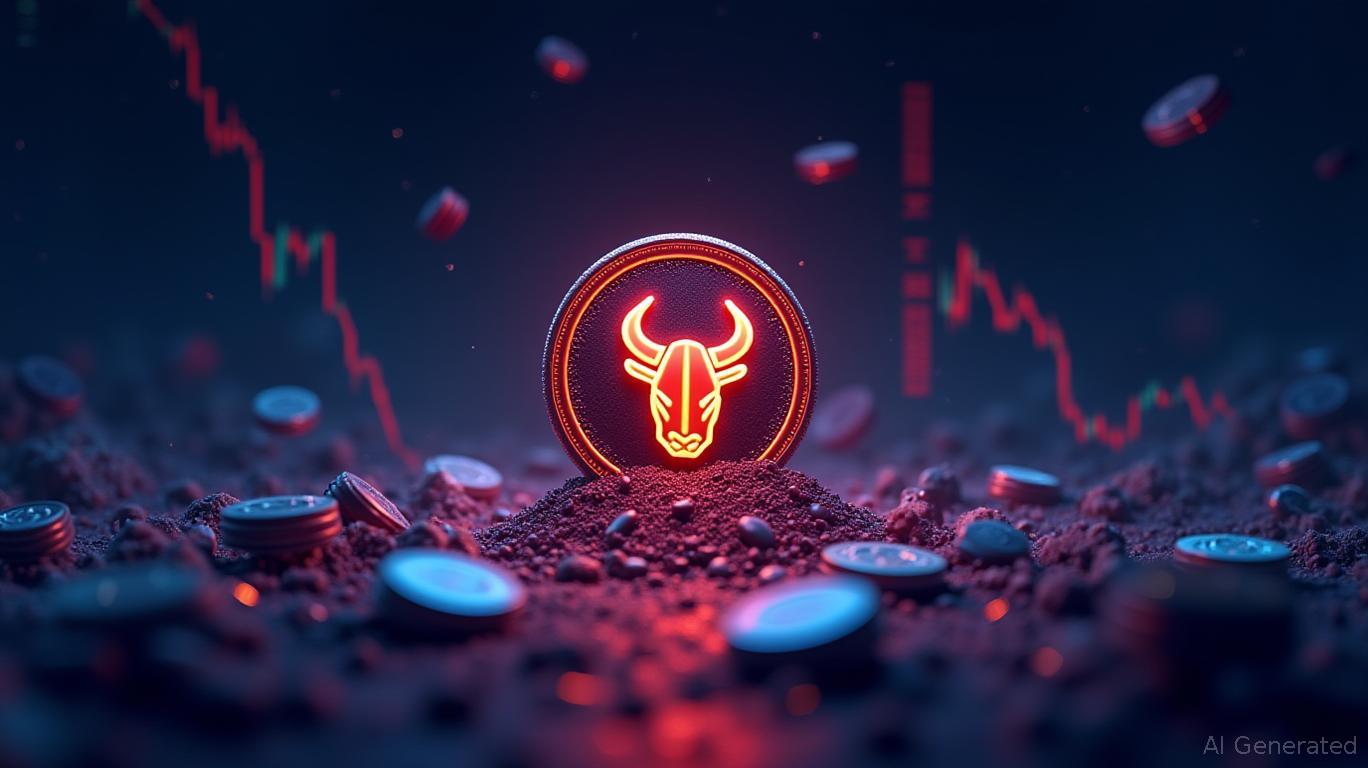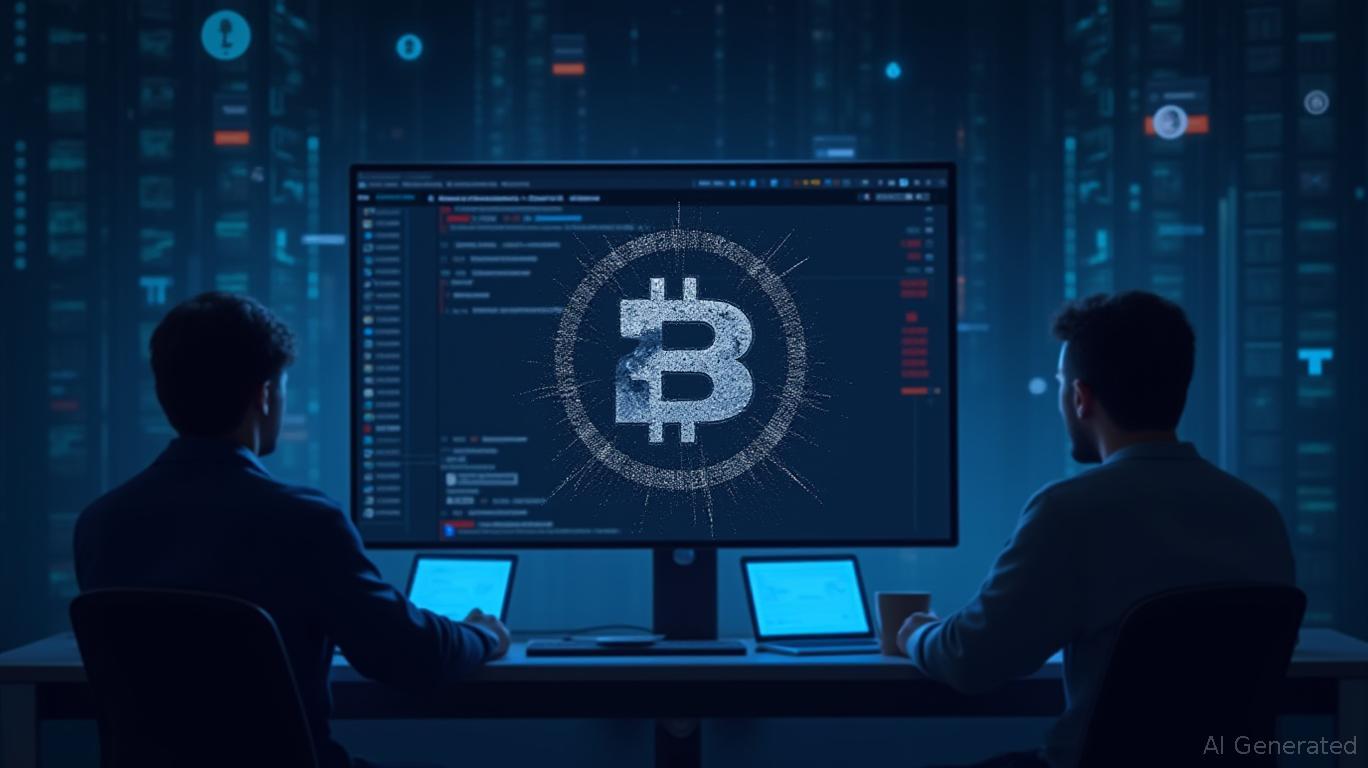Global authorities adjust cryptocurrency regulations to strike a balance between fostering innovation and maintaining stability
- Global regulators are adjusting crypto frameworks to balance innovation and risk management, with Hong Kong, Switzerland, Brazil, and the EU implementing new measures. - Hong Kong’s SFC allows local exchanges to access global liquidity pools but faces low adoption compared to India and Japan. - Switzerland’s AMINA secures EU MiCA compliance, highlighting maturing markets amid calls for stricter oversight. - Brazil’s 30% tax on undeclared crypto aims to formalize the sector but risks burdening small inves
Regulators worldwide are adjusting their approaches to cryptocurrency oversight as financial institutions and lawmakers strive to encourage innovation while managing associated risks. Recent policy shifts in Hong Kong, Switzerland, Brazil, and the European Union highlight the dynamic nature of crypto regulation. The Securities and Futures Commission (SFC) in Hong Kong has rolled out new guidelines that permit domestic crypto exchanges to tap into international liquidity pools, an effort designed to establish the
Elsewhere, Swiss crypto bank AMINA has obtained

In Brazil, a proposed 30% tax on undisclosed crypto holdings has sparked political controversy.
On the global stage, authorities are also reassessing capital rules for banks dealing with digital assets. The Basel Committee on Banking Supervision is
Enforcement remains active, with Australian authorities recently
The trend toward balanced regulation is clear across different regions, as seen in Hong Kong’s liquidity measures, Brazil’s tax initiatives, and the EU’s MiCA rules—all aiming to support innovation while safeguarding financial stability.
Disclaimer: The content of this article solely reflects the author's opinion and does not represent the platform in any capacity. This article is not intended to serve as a reference for making investment decisions.
You may also like
Ethereum Updates: BullZilla Achieves 2,381% Return Despite Meme Coin Slump
- BullZilla ($BZIL) defies crypto market selloff with 2,381% ROI projections, contrasting Ethereum (ETH) and Pepe (PEPE)’s double-digit declines. - Structured tokenomics, including deflationary burns and staking rewards, drive BullZilla’s presale growth, now in Stage 8D with $1M raised. - Ethereum’s 2.45% drop reflects broader market corrections, while Pepe’s 5.92% slump signals waning retail enthusiasm for meme coins. - Analysts highlight BullZilla’s transparent mechanics as a "structured opportunity," th

Uranium Suppliers Strengthen Energy Stability During Worldwide Unrest
- enCore Energy and Verdera Energy advance uranium production plans to strengthen U.S. energy security amid global tensions. - enCore focuses on in-situ recovery (ISR) technology for sustainable uranium extraction at key U.S. sites like Alta Mesa and Dewey-Burdock. - Verdera secures $20M financing and completes a go-public transaction with POCML 7 Inc., though regulatory and market risks remain. - Both companies aim to reduce reliance on foreign uranium supplies by scaling domestic production amid rising n

Balancer Suffers $116M Hack, Highlighting Trust Issues in DeFi
- Balancer Protocol suffered a $116.6M exploit on November 3, 2025, marking one of DeFi’s largest breaches. - Attackers exploited boosted pools’ vulnerabilities, draining liquidity across multiple blockchains within 30 minutes. - Forked projects like Beets also lost funds, triggering panic withdrawals and renewed debates over DeFi security gaps. - PeckShield urged users to revoke approvals, while Lido and Aave confirmed core operations remained unaffected. - The incident exposed systemic risks in complex p
